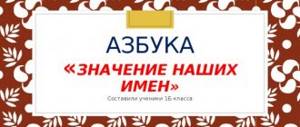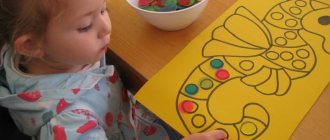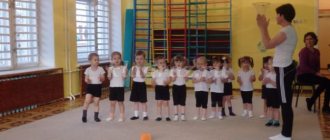Planning for extracurricular activities “The Amazing World of Words” 3rd grade
EXPLANATORY NOTE
The work program for extracurricular activities “The Amazing World of Words” is based on:
— Federal state educational standard for primary general education of the second generation;
— Author’s program “The Wonderful World of Words.” L.V. Petlenko, V.Yu. Romanova 2011;
- Collection of extracurricular activities programs: grades 1-4 / ed. N. F. Vinogradova. – M.: Ventana Graf, 2013
- curriculum of MBOU secondary school No. 75 of the city of Ulyanovsk.
— with the educational needs and requests of students and their parents
GOALS AND OBJECTIVES OF THE COURSE
Extracurricular activities related to the study of the Russian language in primary school are aimed at achieving the following goals:
- awareness of language as a phenomenon of national culture and fundamental
means of human communication; developing a positive attitude
to correct speech as an indicator of a person’s general culture;
— familiarization with the norms of the Russian language in order to select the necessary language means for solving communicative problems;
— mastery of educational activities with language units, the ability to practically use knowledge.
Important guidelines for the content of this elective are:
— development of linguistic intuition and orientation in the space of language and speech;
— formation of ideas about language as a universal value;
— study of historical facts reflecting the people’s attitude to language, development of skills related to the study of linguistic space;
— development of ideas about various methods of language learning (research activities, projects as a method of learning, scientific methods of observation, analysis, etc.);
— formation of basic skills related to the implementation of educational linguistic research;
— development of sustainable cognitive interest in the Russian language;
— inclusion of students in practical activities to study and
preserving the purity of the Russian language.
GENERAL CHARACTERISTICS OF THE PROGRAM
The work program for extracurricular activities of the general intellectual direction “The Amazing World of Words” for 3rd grade students is designed for 35 hours. “In the World of Words” is an extracurricular course for junior schoolchildren, the content of which examines the orthoepic, lexical, grammatical diversity of the world of words, the basic methods and ways of knowing it, and also develops linguistic intuition and artistic and imaginative thinking of junior schoolchildren. The study of this course creates conditions for the formation of students’ value attitude towards language, for instilling responsibility for observing the norms of the language as an important component of language culture.
Practical use and familiarity with the norms of using language units in speech contributes to the development of personal responsibility for the purity and correctness of created statements. The activity-based approach used in the course not only develops cognitive interest, but also creates motivation for in-depth study of the Russian language course.
The system of questions and tasks, the use of various methods of language acquisition enable students to find ways to solve research and creative problems. Searching for information about the origin of words, working with dictionaries, clarifying and correcting speech errors allow us to solve problems of self-testing and self-assessment. A variety of gaming and practical activities allow you to better study phonetics, word formation and grammar.
Active research work (individual, pair and group) develops the ability to use various methods of searching for information (in reference books, with the help of parents and teachers); present your own material in a reasoned manner, listen respectfully to your interlocutor and draw conclusions.
The course's lessons are aimed at repeating, clarifying, and expanding initial ideas about language and spelling, lexical, and grammatical norms.
CONTENT OF THE EXTRA-CURRICULAR ACTIVITY PROGRAM
The course content includes information from phonetics, graphics, spelling, lexicology and phraseology, morphemics, word formation, etymology, and grammar.
The content of extracurricular activities is based on the activity approach. Each section of the program involves the use of gaming and practical activities. It is expected to actively master the course in a variety of individual and group work (educational, educational, research assignments, role-playing and didactic games, work on projects, excursions). The inclusion of students in a variety of activities is a condition for acquiring solid knowledge, transforming it into beliefs and skills, and forming the foundations of personal responsibility for preserving the richness of the Russian language.
Such course content not only allows you to solve problems related to the training and development of younger schoolchildren, but also carries great educational potential. The educational function is to develop in younger schoolchildren the need for knowledge and study of the Russian language, its historical roots, diversity, well-founded norms and rules, expression of personal interest and attitude to the facts of the language and understanding of the meaning of language as a phenomenon of national culture. The program pays special attention to the work over language norms and the formation of correct oral and written speech in schoolchildren.
From the history of language
Outdated words. Why words become obsolete. Meanings of obsolete words. The use of obsolete words in modern language. Old and new meanings. Comparison of interpretations of words in the dictionary by V.I. Dahl and the modern explanatory dictionary. How new words appear.
Practical and play activities:
— excursion to the school (local history) museum (acquaintance with ancient household items, national clothing);
— project “Treasures of Grandma’s Chest” (a story about ancient things that are kept in the family);
— game “In the Museum of Words”;
— projects: “Collecting ancient proverbs and sayings”, “Find out the history of the word.”
Simple sentence riddles
Word order in a sentence: the dependence of the meaning of a sentence on the order of words. Elimination of errors and ambiguities that arise due to violation of word order. Sentence intonation. Logical stress. Why are secondary members of a sentence needed? Artistic definitions (epithets). Introduction to the dictionary of epithets. Description of objects in literary texts. Appearance and character in portraits of masters of words. Extending a simple sentence using circumstances. When circumstances are necessary. Use of circumstances in announcements, invitations, posters. Extending a simple sentence using complements. The use of additions in speech (lexical compatibility and norm). Homogeneous members of a sentence. Propagation of a sentence using homogeneous members. Which parts of a sentence are homogeneous? Correction of shortcomings and errors in the use of homogeneous members of a sentence. Is it always possible to continue a series of homogeneous terms? Punctuation marks for homogeneous members.
Practical and play activities:
— linguistic experiments: “How many answers can be given to the proposed question?”, “How can a sentence be rearranged to express all possible semantic shades for it”; dramatization of dialogues observing correct intonation and logical stress;
— games: “The most attentive” (describing a classmate’s appearance), “Guess the object from the description,” “Nonsense”;
— competition “The Longest Uniform Row”;
— construction of sentences with homogeneous members according to models;
— games: “Put a comma in place,” “Make a sentence according to the diagram,” “Repeat and continue.”
Labyrinths of grammar
Word in grammar. How words “work” or why grammar is needed.
About nouns in essence
Why learning grammar begins with a noun. What determines the gender of a noun? The use of common nouns in speech. Ways to express the meaning of number in nouns in Russian. Rules for the use of plural nouns. How to determine the number of indeclinable nouns. Did nouns always have only two numbers? Why do nouns change by case? History of case names. Case meanings, familiarity with grammatical norms (“a kilogram of tomatoes”, “a pair of socks”, “a glass of sugar”). Proper names. The history of some surnames. The meaning of names.
— search for the necessary information to complete a learning task using various sources;
- independently or with the help of a teacher, plan actions to complete the educational project;
— evaluate the correctness of actions, carry out final control based on the results of the task;
— carry out educational cooperation. Monitor the actions of the partner and provide the necessary mutual assistance in cooperation.
Practical and play activities:
— games: “On the contrary”, “Who is more”;
— projects: “What the cases told about themselves,” “My name,” “Proper names in my family.”
Such different signs of objects
The meaning of adjectives. Describing the properties and qualities of objects using adjectives. How in the old days they used adjectives in addresses. Comparison of qualities and properties of objects using degrees of comparison. Peculiarities of using degrees of comparison of qualitative adjectives in speech. Correction of speech errors and shortcomings in the use of degrees of comparison. Meaning of relative adjectives. What are possessive adjectives called? Methods of forming some Russian surnames (Aleshin, Arbuzov, Borisov, Koltsov, Pravdin...). Use of possessive adjectives in phraseological units.
Practical and play activities:
— project “Meanings of color adjectives”;
— games: “Give a compliment”, “Building a house”;
— quiz “The Best”;
— game-competition “Choose a word.”
Forms of control
To test the mastery of universal educational actions, the following types of work are used:
- participation in competitions
- project protection
- generalizing knowledge game “Own game”
Educational and thematic plan
| № | Section names | Total hours |
| 1 | From the history of language. | 2 |
| 2 | Simple sentence signs. | 9 |
| 3 | Labyrinths of grammar. | 2 |
| 4 | About nouns in essence. | 12 |
| 5 | Such different signs of objects. | 8 |
| 6 | Summary of program topics for the year. | 2 |
| Total: | 35 |
PERSONAL AND METASUBJECT RESULTS OF MASTERING A COURSE OF EXTRACURRICULAR ACTIVITIES
Personal
- evaluate the positive personality traits of classmates;
- orientation in the moral content and meaning of actions of both one’s own and those around them (at a level appropriate to age);
- awareness of the role of speech in human communication;
- understanding the richness and diversity of linguistic means for expressing thoughts and feelings; attention to the melody of folk speech;
- sustainable educational and cognitive motivation for learning, interest in studying the course of speech development.
- sense of beauty - to be able to feel the beauty and expressiveness of speech, strive to improve speech;
- interest in learning the language.
Metasubject
- observe the use of obsolete and new words in the text;
- clarify the meaning of a word using an explanatory dictionary;
- compare the interpretation of a word in different dictionaries;
- formulate your own opinion, give reasons for it, negotiate and come to a common solution when discussing a problem together;
- search for the necessary information to complete an educational task using educational literature;
- independently or with the help of a teacher, plan actions to complete an educational project;
- evaluate the correctness of actions, carry out final control based on the results of the task.
- observe and analyze the order of words in a simple sentence, based on observation, build a reasoning about how the order of words in a sentence and its meaning are interconnected;
- eliminate mistakes made in the order of words in a sentence;
- observe the intonation of exclamatory and interrogative sentences. Distinguish between the intonation of exclamatory and non-exclamatory, interrogative and non-interrogative sentences;
- explore the relationship between logical stress and the meaning of a sentence;
- carry out educational cooperation;
- control the actions of the partner and provide the necessary mutual assistance in cooperation;
- analyze and evaluate the content, language features and structure of the descriptive text;
- compose a written statement according to the proposed model;
- evaluate the correctness of the task and make the necessary adjustments during and at the end of the task;
- create small written texts on the proposed topic, present the same information verbally and schematically (the “Safe Route” project);
- compare the texts of invitations, analyze their structure, identify inaccuracies and correct them;
- work with information presented in the form of a model;
- correlate sentence patterns with their models;
- analyze the meaning of the sentence and, based on the analysis, identify the location of the comma.
- observe the use of common nouns and, based on observations, derive patterns of their use;
- based on observation of forms of nouns in texts
- build reasoning about ways of expressing number in nouns in the Russian language;
- observe the norms of the Russian literary language in the formation of case forms and plural forms of nouns and monitor their compliance in the speech of the interlocutor;
- listen and understand informational text;
CALENDAR AND THEMATIC PLANNING
| № | Lesson topic | Contents of the lesson | Number of hours | date | Note |
| 1 | Old and new words in the language. | Observing the use of obsolete and new words in the text; clarifying the meaning of a word using an explanatory dictionary; comparison of word interpretation in various dictionaries; excursion to the school museum (acquaintance with ancient household items, national clothing) | 1 | ||
| 2 | Game “In the Museum of Words” | Game “In the Museum of Words”. Finding the information you need to complete educational task using educational literature. | 1 | ||
| 3 | Project "Treasures of Grandma's Chest" | Compilation about ancient things that are kept in the family. | 1 | ||
| 4 | Editing text | Ancient proverbs and sayings. Working with deformed text. Implementation of educational cooperation. | 1 | ||
| 5 | “The bicycle crashed the tram,” or Disorder in the sentence. | Word order in a sentence: understanding the dependence of the meaning of a sentence on word order. Elimination of errors, ambiguities that arise cabins due to a violation of word order. | 1 | ||
| 6 | Important little things. | Learning to place logical stress correctly. re-enactment dialogues with correct intonation and logical stress; The difference in intonation between exclamatory and non-exclamatory, interrogative and non-interrogative sentences. Linguistic experiments: “How many answers can be given to the given question?” | 1 | ||
| 7 | Requires definition Artistic nal definitions (epithets). Getting to know the dictionary epithets. | Artistic definitions (epithets). Get to know the dictionary epithets. Description of objects in literary texts. Appearance and character in portraits of masters of words. Games “Guess the object by description”, “Nonsense”; “The most attentive” (description of a classmate’s appearance | 1 | ||
| 8 | Important circumstances. | Extending a simple sentence using circumstances. When circumstances are necessary. | 1 | ||
| 9 | Needs to be supplemented. | Extending a simple sentence using complements. Use of additions in speech (lexical compatibility and norm). | 1 | ||
| 10 | “The lady checked in a sofa, a suitcase, and a travel bag as luggage.” | Homogeneous members of the sentence. Proposal Distribution using homogeneous members. | 1 | ||
| 11 | Line up! | Is it always possible to continue a series of homogeneous terms? Competition "Longest homogeneous row." We analyze the meaning of the sentence and, based on the analysis, identify the location of the comma. | 1 | ||
| 12 | Commas in place! | Punctuation marks for homogeneous members. Game: “Put the comma in place.” | 1 | ||
| 13 | Word in grammar. | We formulate our own opinion, give reasons for it, agree and come to a common solution when discussing the problem together. | 1 | ||
| 14 | How words “work”, or why grammar is needed. | Observation and analysis of the order of words in a simple sentence, based on observation we build a reasoning about how the order of words in a sentence and its meaning are interconnected. | 1 | ||
| 15 | "The white swan is swimming." | Observe the use of common nouns and, based on observations, derive patterns of their use. | 1 | ||
| 16 | Can gender be common? | The use of common nouns in speech. About nouns in essence Why learning grammar begins with a noun. What determines the gender of a noun? | 1 | ||
| 17 | How can counting be useful in Russian lessons? | Based on observing the forms of nouns in texts, he builds reasoning about the ways of expressing number in nouns in the Russian language. | 1 | ||
| 18 | What if there is no ending? | Compliance with the norms of the Russian literary language in the formation of case forms and plural forms of nouns and we control their compliance in the speech of the interlocutor. | 1 | ||
| 19 | One, two, many. | Did nouns always have only two numbers? Ways to express the meaning of number in nouns in Russian language. Rules for the use of plural nouns. How to determine the number of indeclinable nouns. | 1 | ||
| 20 | Why is the nominative case called nominative? Project: “What the cases told about themselves.” | History of case names. Case meanings, familiarity with grammatical norms (“a kilogram of tomatoes”, “a pair of socks”, “a glass of sugar”). Why do nouns change by case? Let's start working on the project. | 1 | ||
| 21 | How does the genitive case work? | Searching for the necessary information to complete a learning task using various sources. Systematization of knowledge about the genitive case. | 1 | ||
| 22 | "Generous" case. | Systematization of knowledge about the dative case. We comply with the norms of the Russian literary language in the formation of case forms and plural forms of nouns and control their compliance in the speech of the interlocutor. | 1 | ||
| 23 | The accusative case is a great disguiser. | Systematization of knowledge about the accusative case. We distinguish between the genitive and accusative cases. | 1 | ||
| 24 | Case-hard worker. | Assessing the correctness of actions, carrying out final control based on the results of the task, carrying out educational cooperation. Systematization of knowledge about the instrumental case. | 1 | ||
| 25 | Favorite “work” of the prepositional case. Defense of the project “What the cases told about themselves.” | Searching for the necessary information to complete a learning task using various sources. Systematization of knowledge about the prepositional case. Project protection. | 1 | ||
| 26 | Who owns proper names? | Proper names. The history of some surnames. The meaning of names. “My name”, “Proper names in my family”. | 1 | ||
| 27 | Let's talk about qualities, colors, properties and characters. | Orally composing a short monologue statement using given linguistic means. | 1 | ||
| 28 | Everything is relative. | Compliance with the norms of the Russian literary language in education and the use of degrees of comparison of adjectives. Monitoring compliance with these norms in the interlocutor’s speech and correcting mistakes made during verbal communication. | 1 | ||
| 29 | Is “the smartest always the smartest”: we compare and evaluate. | Monitoring the actions of the partner and providing the necessary mutual assistance in cooperation. Correction of speech errors and shortcomings in the use of degrees of comparison. Comparison of qualities and properties of objects using degrees of comparison. | 1 | ||
| 30 | What belongs to whom? | Meaning of relative adjectives. | 1 | ||
| 31 | Another duty possessive adjectives. | Let's find out what adjectives are called possessive adjectives. We identify ways of forming some Russian surnames (Aleshin, Arbuzov, Borisov, Koltsov, Pravdin...). Sees the use of possessive adjectives in phraseological units. | 1 | ||
| 32 | "Crocodile Tears" | Monitoring compliance with the norms of the Russian language in the speech of the interlocutor and correcting mistakes made during verbal communication; We put forward hypotheses and find arguments to prove them. | 1 | ||
| 33 | Linguistic games. | “Friendly family”, “Find the odd one out”. The words are written vertically on the board: hard work and literature. Choose a friendly family from different parts of speech for each letter. Educational cooperation and interaction, ability to negotiate, distribute roles in gaming activities | 1 | ||
| 34-35 | "My own game". Summary of program topics for the year. | Game "Connoisseurs". Assessing the correctness of actions, final control based on the results of the task; | 2 |
EDUCATIONAL AND METHODOLOGICAL SUPPORT
Buyko V.I., Tarashchenko L.V. Russian language in crosswords. Composition of the word. – Ekaterinburg: Litur, 2006
Volina V.V. Learning by playing. – M.: New School, 1994
Zhirenko O. E., Gaidina L. I., Kochergina A. V. Learning Russian with passion: Formation of spelling literacy: grades 1-4. – M.: 5 for knowledge, 2005
Ivanova V. A., Potikha Z. A., Rosenthal D. E. Interesting about the Russian language: A manual for teachers. – L.: Enlightenment. Leningr. department, 1990
Illustrated explanatory dictionary of the Russian language / V. I. Dal. – M.: Eksmo, 2007
Mokienko V. M. Mysteries of Russian phraseology. St. Petersburg: Avalon, ABC-classics, 2005
Russian proverbs and sayings / Ed. V. P. Anikina. – M.: Fiction, 1988
Ushakov D. N. Large explanatory dictionary of the modern Russian language. - M.: Alta-Print, 2007
Lesson summary for Extracurricular Activities of the course “On the Path of Goodness”, 3rd grade. "Kindness"
- What kind of person is this? - asked the grandson.
“An ordinary person,” answered the grandfather.
Story Analysis:
— Did you like the story?
—Can we say that grandfather and grandson are kind people? Why?
— About which of the people passing by did my grandfather say that “this is not a person.” Why?
- Why did the grandfather call the third person passing by an ordinary person?
- What other person can you call him?
—What does this story teach us?
Stop 3 “The Impenetrable Swamp of Difficult Problems”
— Guys, we talked a lot about kindness, but unfortunately there is also evil on our planet.
-What is evil?
Evil
is causing harm and pain to people, animals, and plants.
- And if there is good and evil, then people can commit good and unkind (evil) deeds.
— Our 4th stop is called “The Impenetrable Swamp of Difficult Problems.”
-To get across it you need to solve problems.
-These will not be mathematical problems, but life ones.
“But I think you can handle them without difficulty.”
(Each team receives a task, analyzes and discusses the situation given in the task, and proposes its solution.)
1.Three-year-old Vanya saw a girl of about six who was cradling her bunny in a toy stroller. He approached the happy owner of the pink treasure and very politely asked: “Please let the bunny play.” But the owner of the soft toy hid it behind her back and stamped her feet: “Get away!” This is my bunny! Vanya continued to ask for a toy. His mother could not stand it and also began to persuade the girl: “Please let Vanechka play with the bunny, and he will give you his toy.” But the exchange did not take place, and little Vanya cried bitterly. Mom took the boy in her arms and headed towards the house. What about the girl's mother? The woman sat nearby on a bench, continued to calmly leaf through her colorful magazine, and several times raised her eyes with curiosity to see how the episode would end.
.
How do you evaluate the action of the girl and her mother?
2.The children played in the sandbox. An old sick cat walked by. The fur hung on it in clumps: the cat was molting. “Ugh, what a nasty cat,” Lena said. “I just want to throw something at it,” said Nadya. And the children began throwing sand at the cat. How to evaluate children's actions?
3. One day Petya and Grisha entered the classroom during recess. There was no one in the class. There were two large red apples on the teacher's desk. “We take it and run away,” said Petya. He grabbed the apple and ran out of the classroom. Grisha did not take the apple. During the lesson, the teacher asked the children who took the apple. Everyone was silent. Grisha stood up and said that Petya took the apple. “Ooh, traitor,” thought Petya, “I’ll even settle accounts with you!” How do you evaluate Grisha's action?





